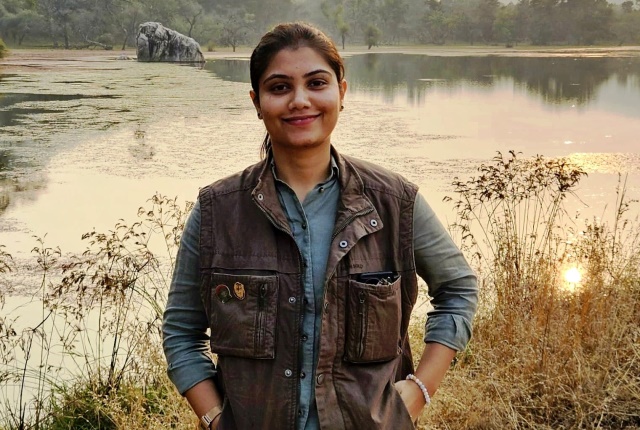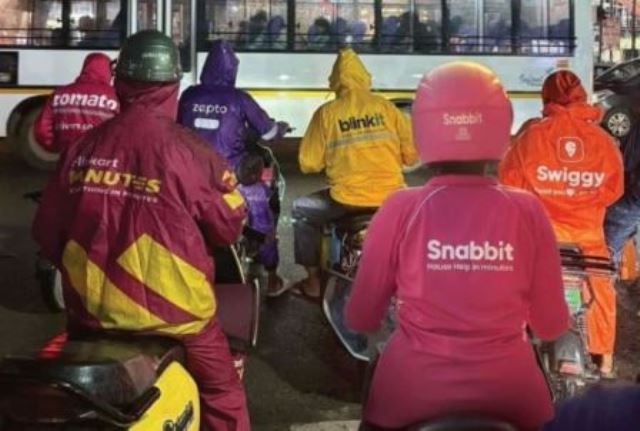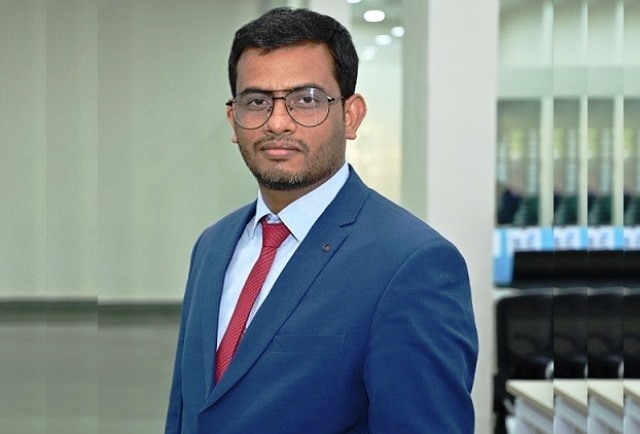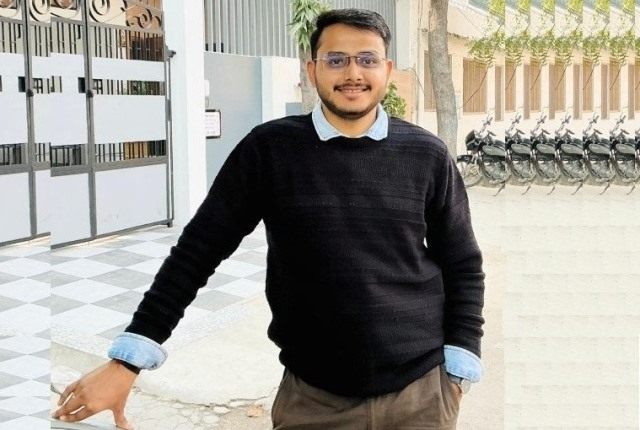Suyash Varma:Making ordinary Indians aware,
Suyash Varma is among the youngest founders of an NGO anywhere in the world. He is a certified yoga instructor, writer, teacher, mentor and musician, who is spearheading a quiet revolution in the backwaters of Bihar.
His NGO Wake up India Foundation is at the forefront of this change, with students of various prestigious universities working selflessly to help the poorest of the poor break the shackles of ignorance and poverty with education. Here are the excerpts of the wide ranging interview with the multi-talented Suyush.
The NGO space in India is already overcrowded; why one more NGO?
Our method and area of operation differ from others. Moreover, it is not a competitive industry. It’s always good to have more people having the urge to change the society. Our work culture and structure is more informal and our method and area of operation are different.
Can you be called the youngest director of an NGO anywhere in the world?
Honestly, I have no idea about the age of founders of NGOs across the world. I started the group when I was a second-year college student (Age 19). It’s been 7 years now.

In the age people look for a regular job, you have started an NGO. Do you not face financial insecurity?
Financial security remains a concern, however, the urge to impact the society drives you the move in the direction of your dreams. For me, I was involved in other works for financial assistance.
What were your motivations to start the NGO?
Injustice inspired me to work. Long queues, delayed service delivery in the government sector, lack of informed choices and other such things made me wonder that why a country with such an excellent demographic dividend is unable to fulfill the basic necessities of its citizens? Although the constitution has explicitly conceptualised India to be a welfare state, the government machinery has failed to achieve the same.
The unavailability of basic services to the neediest people inspired me to start the organisation.
Very recently, I learned through a BBC Documentary that Power Backup Generators are Indian concept and the total number of generators installed here can light entire Australia for 1 year. Electricity is a basic amenity but citizens are devoid of it. Such things inspire me to work more.
What are the challenges and opportunities of establishing and NGO and working in Bihar?
Bihar can be considered as a heaven for NGOs to work. There is so much scope for development. I’m from Bihar and I’ve faced the challenges during my school days. There is a vicious trap – lack of affordable educational facilities leads to poor knowledge of the subject, poor knowledge leads to unemployment, unemployment leads to poverty and poverty again leads to lack of affordable educational facilities.
Such has been the trend of the education sector. There is a lot and lot to do in Bihar. Challenges that we faced were mostly related to people not willing to send their students to schools and government officials not willing to participate/approve the plans.
What are the activities the NGO engages in?
Wake Up India Foundation operates in three verticals – The Campus Project, The Gurukul Project, and The Teachers’ Room. The Campus Project operates in 4 states and has students from different colleges as members. Under The Gurukul Project, we have 21 schools providing education in the remotest areas of Bihar. The Teachers’ Room project, started this year, aims to provide free online education through different mediums (desktop and mobile).

How do you get your funding?
We receive mostly private funding. We don’t have any government projects as of now.
Do you have a regular staff or is the NGO entirely based on volunteers?
The Campus Project and The Teachers Room are entirely based on volunteers; while The Gurukul Project has a regular staff.
Can you share as to how you are contributing to the society?
Change is a continuous phenomenon. Through our awareness campaigns, we have impacted many lives. There are many such examples, however, I would like to highlight the contribution of The Gurukul Project in revamping the education system of rural Bihar.
We operate in places where the bigwigs of education industry don’t operate due to less profit. Our schools, equipped with smart boards, aim to provide the best guidance to the students. Last year, 2 of our students got 10 CGPA in the CBSE matriculation examination.
What are your plans for the next 5-10 years?
Expansion and inclusion of technology in different sectors to drive change will be our priority for the next five years. The Campus Project operates in 4 states. We’re planning to include 2 more states this year. By 2020, we plan to have 10 chapters of The Campus Project. My vision is to involve more youth and make them committed to drive social change through innovation and policy research.
What specific social and political change you hope to achieve?
Awareness. There is an urgent need for the people to be aware of their rights and duties. That’s how development will trickle down to the lowest strata of the society. With better awareness, we make better choices. And with better choices, we get better results.
How do you plan to break the barriers of caste, religion or corruption in politics?
Corruption has to be addressed at the root. There needs to be a system that is accountable to the public. Also, the public should be aware of their rights to prevent corrupt practices prevalent in the system. A simple example would be of The Consumer Forum. Most of us are unaware that such an ombudsman exists where any grievance is immediately redressed.
Caste and religion barriers can only be overcome by spreading education and implementing it in our actions. At our schools, we invite people from all castes to participate in village-level campaigns. Also, The Campus Project has conducted several campaigns to promote caste and gender equality.
A lot of educated Indians want to go abroad to escape reservation, corruption, casteism and language and religious barriers in India. How do you plan to change the country rooted in such evils?
A trust in the government system needs to be developed. Indians, instead of escaping the system, should stay in the system to change it. The government before implementing any policy invites suggestions from the public on it and those suggestions, if feasible, are duly implemented. However, most of us don’t bother about those policies until it is enforced upon us.
The three-step solution should be: 1. Remove policy paralysis and develop India as an economic hub. 2. Enable strict punishment for those who discriminate based on caste, creed or religion (Under Art. 15 of the Constitution) and 3. Launch nation-wide awareness campaigns and include celebrities as ambassadors to uproot this evil.
How can people contribute to you?
Interested individuals can contribute as volunteers in The Campus Project, as mentors/subject matter experts in the Teacher’s Room Project and as a full-time staff in the Gurukul Project.
Describe your typical day/week related to NGO?
It goes mostly on providing hands-on experience to the volunteers and planning about the next campaigns under The Campus Project. The weekends are for understanding reports from the Gurukul School Project.
How do you deal with demotivated volunteers, who lose interest?
As mentioned earlier, we follow a very informal approach. That means anyone within the organisation can approach me directly with their suggestions and complaints. If the volunteers are demotivated due to their expectations not being met, we definitely deliberate on the issue.
One-on-one with the people involved always solves the issues. However, there are people who join the organisation due to the charm associated and so, get easily demotivated, we try not to continue with such people.
Did you face objections or ridicule of your family and peer group? How do you deal with the same?
It is said that every master was first ridiculed before they were revered. In my case, the best part was that my family always supported me. For others, my constant belief and determination were always enough for their criticism.
Do you think your NGO can bring about a real change in a conservative patriarchal society like India rooted in the past, with Khap panchayats or Kangaroo courts?
I would slightly differ from the point. We believe India, unlike other countries, had a glorious past. For example, voting rights to women in US and UK were granted in late 20th century, however, Indian scripts mention of Mahajanpads (large villages – existed around 300-500 B.C.) where women participated in parliamentary sessions.
We make sure that our students and the volunteer carry the glorious culture of India and spread it. Khaps and Kangaroo Court need more of an ideological transformation. People of our generation have successfully defied such rituals/practices. Although, Wake Up India Foundation does not directly operate in these areas, but there are other NGOs that have highlighted the menace and pressurised government to make legislations for the same.
Your view on reservations in a government job that affect the college students, your core volunteers the most?
Reservation was introduced in the constitution for the upliftment of the downtrodden and was supposed to be removed after a few years. However, due to political nexus, it continued. While I strongly support those in need should get a reservation, but I oppose the current caste-based reservation. Not every person belonging to the same caste is equally oppressed or economically weak. Benefits should be provided only to those in need.
The things and incidents that surprised you most?
As a part of my job, I’ve to interact with college students from different states and with kids who join our school in rural Bihar. What surprises me the most is I find both equally talented. We conduct Science Exhibition regularly in our schools and the ideas that pop up from those young minds makes me speechless. All they need is a platform to showcase their skills.
You are a multi-talented individual, a certified yoga instructor, writer, teacher, mentor, musician and also the founder of an NGO. How do you juggle in all these roles and which of these roles appeals to you most?
I won’t call myself talented, but skilled. I completed my studies from a Hindi medium school and had no idea about the socio-political structure of India till I joined college. I’ve been an average student my entire life. All these skills I’ve learned over years were due to my urge to move out of my comfort zone. Growth begins the moment you start getting uncomfortable. A few small daily acts of discipline stack up over time to produce enormous achievements.
As far as the role is concerned, I would love to be known as a constant learner. I hope to make more such choices that help me learn new skills. It is said that the more you own your power to make choices, the more powerful your choices become.

www.facebook.com/wakeupindia
www.instagram.com/wakeupindiafoundation
Vickram E. Diwan is a published short story author, blogger, copy-editor and journalist,)



